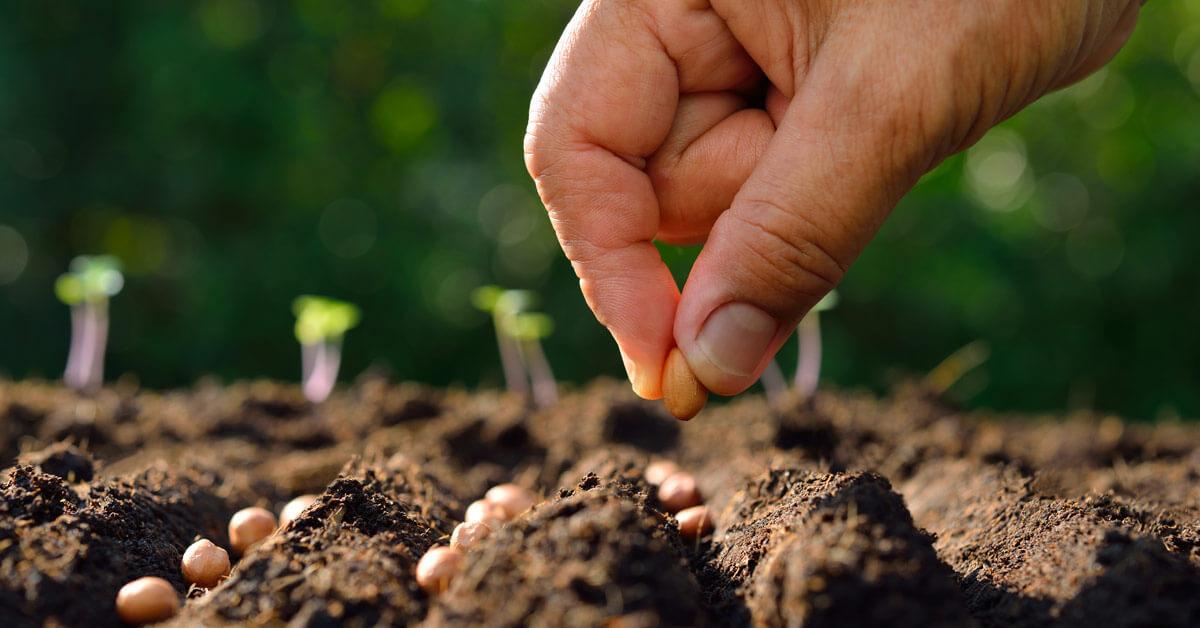
Beirut, Lebanon (Enmaeya News) — Amid Lebanon’s economic and environmental crises, the “Gharset Kheir” initiative emerged in 2021 as a youth-led community project aiming to promote sustainable home gardening and support Lebanese families in growing their own food locally using organic and eco-friendly methods.
The project started in 2021 by three brothers right after the COVID-19 crisis, especially when people began returning to their agricultural lands. The idea was born: to create a complete farming kit offered to families at a symbolic price to enable them to grow food and achieve simple self-sufficiency at home. Iskandar Emad, one of the founders, told Enmaeya:
“Our goal was to encourage people to grow basic vegetables like tomatoes, cucumbers, and zucchini at home, so they could get organic food at lower costs, especially during the pandemic which affected food availability.”
However, the biggest challenge the initiative faced was the shortage of local seeds. Lebanon imports about 80% of its seeds, making food security fragile against any global or economic crisis. Emad explained:
“Imagine if Lebanon was under a blockade or global trade stopped—where would families get their seeds? Most of our seeds are not originally Lebanese.”
To face this challenge, “Gharset Kheir” established a national seed bank that collects and preserves old local seeds used by previous generations, renewing them annually to ensure real food security. Emad added:
“Local seeds can be saved and replanted every year, unlike hybrid seeds imported from abroad, which cannot be replanted.”
A network of 248 volunteers across Lebanon manages the seed bank. They collect, renew, and distribute seeds to families and farmers who want to practice organic farming. Since its launch, the initiative has distributed more than 30,000 farming kits in Mount Lebanon and is expanding across the country. It also connects with Lebanese expatriates to share this agricultural heritage.
The initiative cooperates with about 48 farmers who grow and renew local seeds. Emad said:
“Producing local seeds is more expensive, but farmers earn better profits compared to imported seeds.” “Gharset Kheir” distributes about one million farming kits annually and maintains a seed bank containing 40 genetic varieties used by researchers and students through workshops and training courses.
Support for the initiative began with donations from individuals and expatriates, then expanded to include partnerships with nurseries and startups supporting environmental and agricultural projects. Emad said:
“The project aims to increase national agricultural land at affordable prices while supporting families and farmers together.”
The team emphasizes raising agricultural awareness through practical and theoretical training programs for students, scouts, and municipalities to encourage seed preservation and renewal.
The initiative also has a social and humanitarian dimension, organizing events like the “Peace on Pumpkin” campaign, which collects crops and turns them into healthy meals distributed to orphanages, elderly people, and the disabled, reflecting community solidarity and support.
Looking ahead, Emad said the biggest challenge is maintaining seed renewal: “We cannot keep seed genetics for more than two years without renewal; it must be renewed yearly with the local community.”
He concluded that “Gharset Kheir” aims to make home gardening a lifestyle across Lebanese society, strengthening national food security, supporting the environment, and creating small economic opportunities for families.



